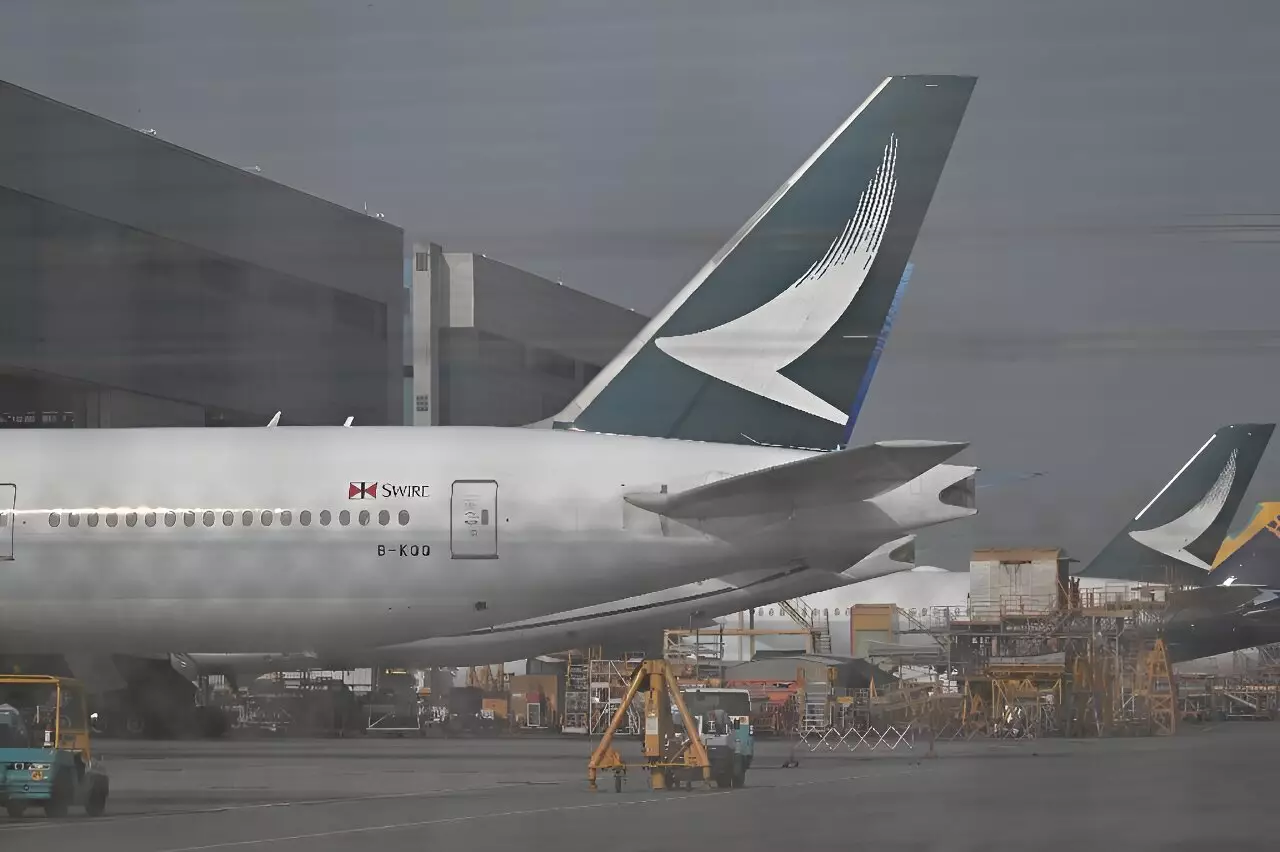In light of a recent engine fire on a Cathay Pacific flight, Europe’s aviation safety agency has mandated inspections of a part of the fleet of Airbus A350 wide-body jets in operation. Rolls-Royce, the manufacturer of the engines on Cathay’s A350s, has confirmed the launch of a one-time precautionary engine inspection program. This development has raised concerns within the aviation industry and prompted similar checks by other airlines operating the A350-900 and A350-1000 models.
The European Union Aviation Safety Agency (EASA) reported that the A350-1000 aircraft experienced an engine failure due to the failure of a high-pressure fuel hose. The incident, which involved an in-flight engine fire shortly after take-off, was promptly detected and extinguished. Following this, the EASA issued an emergency directive requiring inspections on A350-1000s powered by XWB-97 engines. This directive applies to European airlines flying the aircraft, with discretion given to regulators in other countries to enforce it.
Hong Kong-based Cathay Pacific, one of the largest operators of the A350 jetliner, grounded 48 planes for checks after the incident. The inspections, focusing on damage to fuel hose connections inside engines, are to be conducted within the next 3-30 days. The EASA emphasized that these measures are precautionary in nature. Airbus and Rolls-Royce have specified that only A350-1000s powered by XWB-97 engines are affected by the problem.
The Airbus A350 is a significant addition to the aviation industry, serving as Airbus’s largest aircraft post the production of the jumbo A380. With various models tailored for long-haul flights, the A350-1000 can accommodate nearly 500 passengers and cover extensive distances. Notable airlines such as Qatar Airways, Cathay Pacific, and British Airways have incorporated A350s into their fleets. The A350 is a direct competitor to Boeing’s 787 Dreamliner, with over 1,300 orders placed for this aircraft.
Emirates airlines CEO Tim Clark had previously expressed concerns about the durability of Rolls-Royce’s Trent XWB-97 engines. Following the recent events, Rolls-Royce has pledged to enhance the performance of these engines. While Airbus has not yet commented on the situation, the industry remains vigilant about the safety implications of this incident. Shares in Airbus and Rolls-Royce experienced declines in response to these developments, reflecting investor concerns about the impact on the aviation sector.
The mandatory inspections of Airbus A350 engines underscore the critical importance of ensuring aviation safety. As airlines and manufacturers work to address these issues, transparency and collaboration within the industry will be essential in maintaining passenger confidence and upholding safety standards.


Leave a Reply